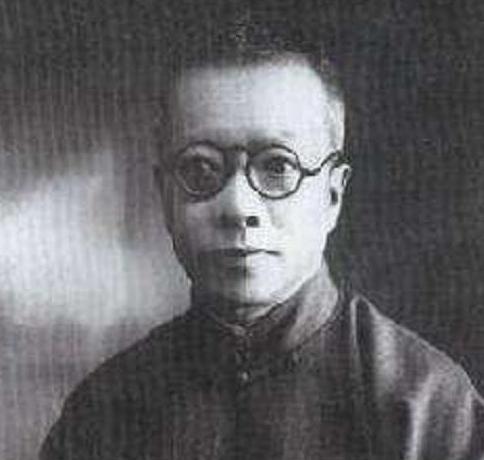History is the memory of things that have been said and done. —Carl Baker
The earliest documentary record of the surname is the "Hundred Family Names" in the Northern Song Dynasty, the founding emperor of the Northern Song Dynasty was Zhao Kuangyin, so the Zhao surname ranked first in the hundred family names, the king surname Qian of Wuyue in the Five Dynasties and Ten Kingdoms ranked second, the Sun surname was the surname of the wife and concubine of the Song Dynasty imperial family, and Li was the later Tang Emperor Li Hou Lord.
The ancients attached great importance to surnames, and even invited some learned people in order to take names, because in ancient times, surnames and surnames were separated at the beginning, and after the Zhou Metric Ceremony, surnames gradually began to merge, but with the introduction of Western ideas, naming became more casual.
Qian Xuantong was a person from the late Qing Dynasty, born in the thirteenth year of Qing Guangxu, studied under Zhang Taiyan, majored in Chinese, in 1917 he submitted articles to Chen Duxiu's magazine, advocating literary reform, he promoted the "Hanyu Pinyin Scheme", as a pioneer in vigorously promoting literary reform, Qian Xuantong has also been contributing articles to the magazine.

However, the strength of one person is insufficient, so Qian Xuantong also looked around for "comrades-in-arms", he thought that the two brothers Zhou Shu and Zhou Zuoren were good literary talents, Qian Xuantong did not tire of it, and went to the supplementary tree bookstore of the Shaoxing Guild Hall in the southern half of Xuanwu Gate to persuade the Zhou brothers.
It was precisely because Qian Xuantong kept looking for the two people, and Zhou Shuren was also impressed by him, in April 1918, Zhou Shuren used Lu Xun as a pen name to throw a copy of the "Diary of a Madman" to the magazine, and from then on Zhou Shuren began to walk among the pioneers of the literary era and became a major cadre of the Cultural Revolution.
In order to expand the influence of the magazine, Qian Xuantong and Liu Bannong, decided to sing a double reed play, one positive and one negative, Liu Bannong wrote the "Book of Fu Wang Jingxuan" with more than 10,000 words, Qian Xuantong jumped out to refute his views, and the two invisibly attracted the attention of some young scholars, and they also began to support cultural reform.
Qian Xuantong advocated literature, but his son did not inherit this, his son was named Qian Bingqiong, he liked science and science, especially nuclear physics, but because during his studies, he was teased for his name, he had good knowledge of physics, but not sports.
So the classmates called him the three strong, once When Qian Xuantong was passing by the school, he just happened to meet his son who was called this nickname, he sounded good, easier to understand than the money he took, he simply changed the name of his son, called Qian Sanqiang.
That is, China's famous nuclear physicist, Qian Sanqiang is the second generation of Marie Curie's student, he has very good results in nuclear physics, he and his wife He Zehui together by the West known as "China's Curie couple", after the end of World War II, all countries will focus on science and technology.
The Soviet Union has also been engaged in a military competition with the United States, and under the research of Qian Sanqiang and other scientists, China finally exploded the first atomic bomb in 1964, and China's national strength has gradually become stronger.